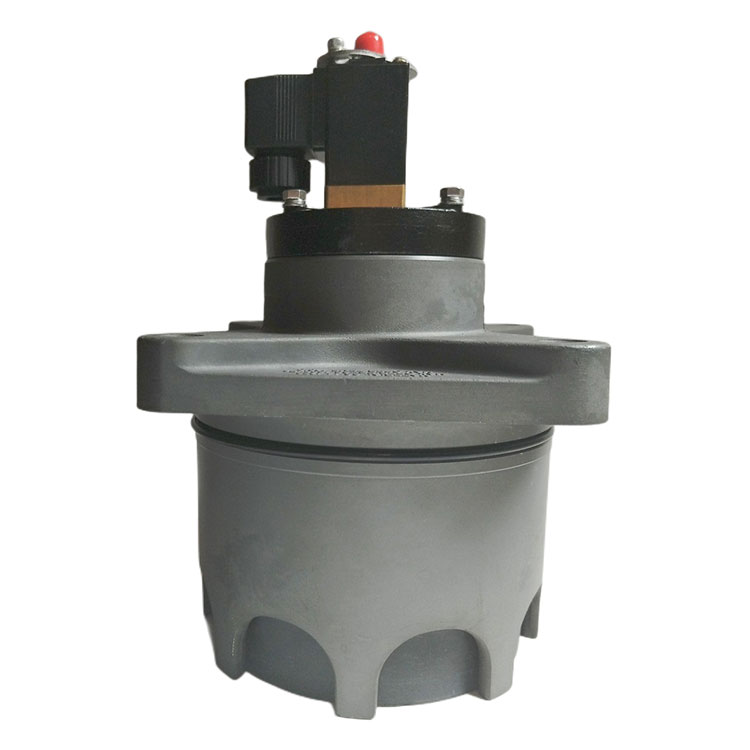What Makes Piston Diaphragm Valves the Smart Choice for Modern Fluid Control Systems?
2025-10-17
A Piston Diaphragm Valve is a highly specialized control component used to regulate the flow of fluids, gases, or slurries in industrial systems. Unlike conventional valves, it utilizes a flexible diaphragm and piston mechanism to isolate the working medium from internal components, ensuring leak-free performance and superior chemical resistance. This design makes it an ideal solution for applications requiring precise control, contamination prevention, and low maintenance.
The operation of a piston diaphragm valve is straightforward yet sophisticated. When actuated, the piston moves vertically to press the diaphragm against the valve seat, effectively closing the passage. When the piston retracts, the diaphragm lifts, allowing the fluid to flow. This linear motion provides accurate control, minimal friction, and long service life.
Below is a detailed technical overview of the Piston Diaphragm Valve specifications that reflect its professional-grade performance:
| Parameter | Specification |
|---|---|
| Body Material | Stainless Steel 304 / 316L, PVC, PP, PVDF |
| Diaphragm Material | EPDM, PTFE, NBR, FKM, Silicone |
| Size Range | DN10 – DN300 (3/8” – 12”) |
| Operating Pressure | Up to 10 bar (145 psi) |
| Operating Temperature | -10°C to 180°C (14°F to 356°F) depending on diaphragm material |
| Connection Type | Threaded, Flanged, Welded, Tri-Clamp |
| Actuation Type | Manual, Pneumatic, or Electric |
| Applications | Chemical dosing, sterile fluid transfer, wastewater treatment, and cleanroom systems |
This table underscores how Piston Diaphragm Valves provide versatility across materials, configurations, and operational settings, adapting to various industrial requirements with ease.
Why Are Piston Diaphragm Valves Important in Industrial Applications?
The importance of piston diaphragm valves lies in their ability to combine precise control with total isolation of process fluids. In industries where contamination control, hygiene, and reliability are paramount, these valves stand out as a critical component. Let’s examine the main reasons why they are so essential:
1. Superior Sealing and Zero Leakage:
The flexible diaphragm creates a hermetic seal between the actuator and process media, ensuring there is no cross-contamination or external leakage. This is particularly crucial in biotechnology, pharmaceuticals, and food processing, where system purity must be maintained at all times.
2. Extended Service Life:
Traditional valves often suffer from seat and stem wear, leading to frequent replacements. The piston diaphragm design eliminates these friction points, reducing mechanical stress and extending operational longevity even under continuous cycling.
3. Corrosion and Chemical Resistance:
With options such as PTFE or FKM diaphragms and stainless-steel or PVDF bodies, piston diaphragm valves can handle corrosive acids, alkalis, and solvents safely. This durability reduces the need for maintenance and replacement, saving both time and cost.
4. Energy Efficiency:
The low torque operation of diaphragm valves requires less energy for actuation, making them compatible with compact pneumatic or electric actuators. This feature enhances efficiency in automated systems.
5. Compliance with Industry Standards:
Many high-quality piston diaphragm valves comply with FDA, USP Class VI, and ISO standards, making them suitable for regulated environments that demand traceability and quality assurance.
6. Easy Maintenance:
The valve’s modular structure allows for simple disassembly and diaphragm replacement, minimizing downtime during service operations.
How Are Piston Diaphragm Valves Shaping the Future of Fluid Control?
As industries evolve toward automation, sustainability, and precision control, Piston Diaphragm Valves are emerging as a key technology driving these advancements. Their design and materials are continuously being refined to meet the growing demands of modern manufacturing and environmental standards.
a. Integration with Smart Systems
The latest generation of diaphragm valves integrates with IoT-enabled monitoring systems. This allows real-time tracking of valve performance, pressure, and temperature, helping operators predict maintenance needs before failures occur. Such smart integration ensures consistent system reliability and reduces operational risks.
b. Environmentally Friendly Materials and Processes
Manufacturers are increasingly adopting eco-friendly production methods and recyclable materials, ensuring valves meet the latest environmental standards. This aligns with global sustainability trends and reduces the carbon footprint of industrial installations.
c. Advancements in Diaphragm Technology
Innovations in multi-layer PTFE diaphragms and reinforced elastomers have significantly improved resistance to temperature, pressure, and aggressive chemicals. These developments enhance reliability in critical applications such as semiconductor fabrication and chemical synthesis.
d. Modular and Customizable Designs
To meet diverse system requirements, modern piston diaphragm valves feature modular configurations that allow customization of body materials, connection types, and actuator options. This adaptability ensures optimal performance in specific environments, whether in a sterile bioprocessing plant or a wastewater facility.
e. Expansion in Automation and Control Systems
The integration of pneumatic and electric actuators with position feedback enables these valves to be part of fully automated process lines. As industries embrace Industry 4.0, the role of diaphragm valves in ensuring precision and safety is more significant than ever.
f. Long-Term Cost Efficiency
While the initial investment in piston diaphragm valves may be higher than standard valve types, their low maintenance, reduced downtime, and long operational lifespan lead to significant cost savings over time. For companies seeking dependable performance, they represent a smart, future-ready investment.
Common Questions About Piston Diaphragm Valves
Q1: What is the main difference between a piston diaphragm valve and a conventional globe valve?
A1: The key difference lies in the sealing mechanism. A piston diaphragm valve uses a flexible diaphragm that completely isolates the process medium from the actuator and internal components, preventing contamination or leakage. In contrast, a globe valve relies on metal-to-metal or soft-seat contact, which can wear out and allow slight leakage over time. Diaphragm valves are also easier to clean and better suited for hygienic or corrosive environments.
Q2: How should a piston diaphragm valve be maintained for optimal performance?
A2: Regular inspection and preventive maintenance are essential. The diaphragm should be checked periodically for wear, cracking, or deformation. It’s also important to clean the valve internals using compatible solutions to remove residue buildup. When replacing the diaphragm, always use genuine spare parts that match the valve’s original specifications. With proper care, these valves can operate reliably for many years.
Why Choose SMCC Piston Diaphragm Valves?
SMCC is a trusted name in the valve industry, known for delivering high-quality and durable Piston Diaphragm Valves designed for demanding applications. Every SMCC valve is engineered with precision materials, advanced sealing technology, and stringent quality testing, ensuring consistent performance even in harsh environments.
SMCC’s product range covers both manual and automated options, offering stainless steel, PVC, and PVDF body materials to meet the full spectrum of industrial needs. The brand’s dedication to innovation ensures that each valve embodies the latest advancements in fluid control design and manufacturing.
Whether used in chemical processing, pharmaceutical production, or water purification, SMCC valves provide exceptional reliability, leak-free operation, and compliance with international standards. As industries continue to pursue higher efficiency and cleaner processes, SMCC remains committed to supporting that vision with cutting-edge valve solutions.
For detailed specifications, pricing, or custom-engineered valve solutions, contact us to learn how SMCC can help optimize your system’s performance and reliability.




